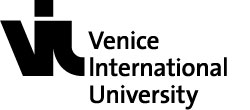F1920 Economics of Cultural Heritage
Professors
Schedule
Course description
To understand the problems concerning cultural heritage, we need a wide variety of disciplines. It is generally thought that archeology, cultural anthropology, art history, museum science and so on play major roles in coping with those problems. However, given the cost relating to preservation and management of cultural heritage and also the benefit brought in by the heritage, economics is surely relevant to this subject.
Actually, economics of cultural heritage is one of the major themes of the so-called cultural economics that was developed and organized in relatively recent years. Thus, in this course we deal with this specific issue by following the approach of cultural economics.
To this end, we first discuss the specific properties of cultural goods (including services)
from economic viewpoint. It is advisable to cope with this issue by comparing them to usual goods treated in economics. Following the economic way of thinking, we separate properties of cultural goods into two parts, namely demand side and supply side. Then, we discuss various problems caused by their specialties on each side.
After general view of cultural goods, we proceed to a special sort of cultural goods, that is cultural capital. This is particularly important for cultural heritage because the latter is seen as a form of the former. Like treatment of cultural goods, we consider cultural capital in comparison with usual capital that is given a specific definition in economics.
We will find that some properties of cultural capital are common to usual capital, but others are not, which requires original treatment for cultural capital. This point will be discussed in a concrete example.
On the basis of these arguments, we turn to the central issue; economics of cultural heritage. The term cultural heritage covers a wide range of things, so first we classify it into several categories. Then we build up an appropriate model for cultural heritage and consider various problems appearing in it. We focus in particular on the following three problems in this course.
(1) problem of evaluation of economic value for cultural heritage.
In cultural economics, CVM (contingent valuation method) has been used to evaluate cultural heritage in many countries. So, we pick up this method and consider its merits and demerits. Some real case studies using this method will be referred to.
(2) problem of measurement of economic effect of cultural heritage.
Cultural heritage gives economic effect mainly to a regional economy directly or indirectly through projects of retrieval and tourism. Thus, it is worth measuring its effect. We discuss conceptual and technical difficulties concerning its measurement and refer to some real examples.
(3) problem of public policy for cultural heritage.
Many countries implement public policy for protection and preservation of cultural heritage with the help of researches mentioned in (1) and (2). In general, cultural things need more or less support from government by their specific properties. Public policy for supporting them consists of the following four factors; (a) public ownership and management (b) subsidy (c) tax system (d) regulation. We pick up among them subsidy and tax system and see how effectively they are actually used in some countries.
Learning outcomes of the course
In this course, students are expected to understand a specific angle of economics to approach to cultural things and see how the cultural value and the economic value are reconciled in cultural economics. In addition, students will find how useful economics is for upkeep of cultural heritage.
Teaching and evaluation methods
Teaching method: In addition to lectures, I will regularly impose seminar papers. Discussion time is also set occasionally, in which discussion will be led by someone’s presentation.
Evaluation method: the mid-term evaluation is based on attendance, seminar paper, presentation and discussion. For the final grade, an exam is added to them.
Percentage of the final grade assigned to each evaluation: attendance and discussion 10%, seminar paper 30%, exam 60%
Syllabus
Week 1: Economic characteristics of cultural heritage
(1) Cultural heritage as goods
(2) Cultural heritage as capital
Week 2: Economic analysis of cultural heritage
[1] Determination of entrance fee - Economic background 1
(1) Demand analysis 1
(2) Demand analysis 2
Week 3
(1) Supply analysis 1
(2) Supply analysis 2
Week 4
(1) Discussion
(2) Economic background 2
Week 5: Revision of the basic theory for cultural heritage
(1) Natural monopoly
(2) Public intervention
Week 6: Self-efforts in price policy in cultural heritage
(1) Price discrimination
(2) Two part pricing
Week 7: [2] Evaluation of cultural heritage
(1) Economic background
(2) Specific features of cultural heritage
Week 8
(1) Travel cost method
(2) Hedonic price method
Make up class (Friday) Stated preference approach
Week 9: Discussion
Week 10
(1) Application of investment theory to cultural heritage
(2) Contingent valuation method
Week 11
(1) Choice experiments
(2) New movements of cultural heritage project
Field trips (Venice) (Friday)
Week 12
(1) Discussion on the field work
(2) Overall summary
Bibliography
N. Gregory Mankiw, Principles of Economics, 6th or 7th ed., Cengage Learning
Baumol,W.J. and W.G.Bowen., Performing arts: the economic dilemma, Twentieth Century Fund, 1966.
Ginsburgh,V.A. and D. Throsby, eds., Handbook of the Economics of Arts and Culture, North-Holland, 2006.
Hutter, M. and I.Rizzo, eds., Economic Perspectives on Cultural Heritage, Macmillan Press, 1997.
Klamer,A. ed., The Value of Culture, Amsterdam U.P., 1996.
Peacock, A.T., ed., Does the Past Have a Future? The Political Economy of Heritage, The Institute of Economic Affairs, 1998.
Rizzo,I. and R.Towse, eds., The Economics of Heritage, Edward Elgar, 2002.
Throsby,D., Economics and Culture, Cambridge U.P., 2001.
Throsby,D., The Economics of Cultural Policy, Cambridge U.P.,2010.
Towse, R. ed., A Handbook of Cultural Economics, Edward Elgar, 2003.




















